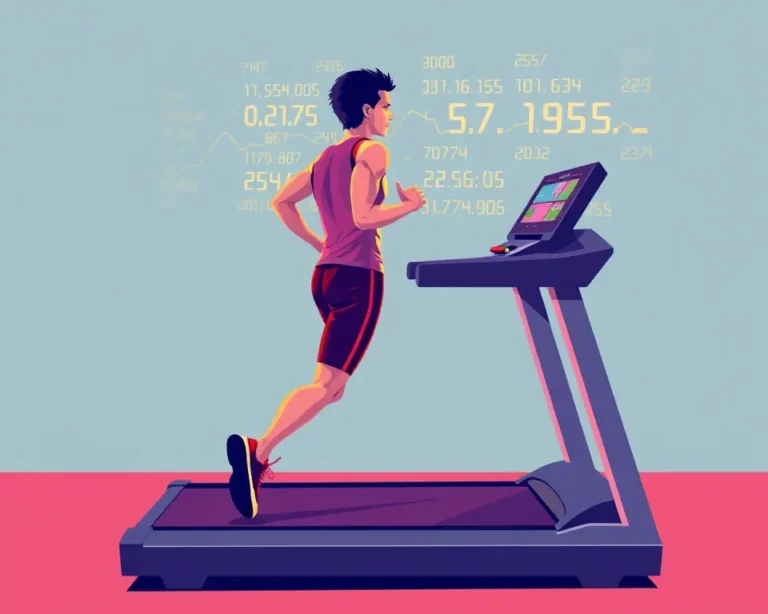The rise of diet and fitness apps has been meteoric, with an estimated 311 million people worldwide using them to track their meals, monitor their activity levels, and pursue their health goals. But a growing body of research suggests that these seemingly benign tools may have a darker side, contributing to disordered eating, negative body image, and compulsive exercise, especially among young adults.
The Double-Edged Sword of Health Tracking
Diet and fitness apps are often marketed as convenient and effective ways to improve health and well-being. They offer features like calorie tracking, exercise logging, goal setting, and progress monitoring, all designed to empower users to take control of their health. And while some users report positive experiences, such as increased awareness and motivation, experts are increasingly concerned about the potential for these apps to trigger or exacerbate unhealthy behaviors and thought patterns.
New Research Highlights the Risks
Recent research from Flinders University in Australia has shed light on the concerning links between diet and fitness app use and disordered eating. The researchers reviewed 38 studies that examined the relationship between these apps and the risk of users becoming obsessive about weight loss, body image, calorie counting, and excessive exercise.
The findings revealed that young adults who regularly use health and fitness apps are more likely to exhibit symptoms of disordered eating, such as:
- Harmful or restrictive diets: Users may become overly focused on limiting their calorie intake or cutting out entire food groups, leading to nutritional deficiencies and other health problems.
- Negative thoughts about body image: The apps’ emphasis on weight loss and body shape can fuel dissatisfaction with one’s appearance and contribute to feelings of inadequacy or shame.
- Compulsive exercise habits: The pressure to meet fitness goals and track progress can lead to excessive or obsessive exercise, potentially resulting in injuries, burnout, and other negative consequences.
The Pressure to Achieve
According to Isabella Anderberg, a PhD student at Flinders University, diet and fitness apps can have “unintended negative consequences, such as creating pressure to meet goals, concerns about body image as well as provoking feelings of guilt if goals aren’t achieved”. This pressure can be particularly harmful for individuals who already have pre-existing concerns about their weight or body image.
How Apps Can Contribute to Unhealthy Behaviors
Several factors contribute to the potential for diet and fitness apps to promote disordered eating and body image issues:
Focus on Restriction
Many diet apps emphasize dietary restriction and weight loss, which can trigger restrictive or excessive behaviors. This can be particularly dangerous for individuals with a history of eating disorders or those who are prone to obsessive thinking.
The Numbers Game
The emphasis on calorie counting and other metrics can lead to an unhealthy obsession with numbers. Users may become fixated on hitting specific targets, even if it means sacrificing their overall well-being. This focus on quantification can foster disordered eating by creating rigid diets and app dependency.
Gamification
Some apps “gamify” eating, exercise, and tracking, which can lead to an unhealthy competition with oneself and the app. Users may feel compelled to eat less and less each day in order to achieve a sense of accomplishment, potentially disrupting their metabolism and increasing the risk of rebound weight gain or binge eating.
Social Comparison
Many fitness apps have social features that allow users to compare their progress with others. This can lead to feelings of inadequacy and pressure to conform to unrealistic standards. The constant exposure to idealized bodies and lifestyles on social media can further exacerbate body image concerns.
Mixed Results on Body Image
The research on the impact of diet and fitness apps on body image has yielded mixed results. Some studies have found that diet app users have higher body dissatisfaction, while others have shown that certain fitness apps can have a positive effect on body image. However, even apps that promote positive messages can inadvertently contribute to weight concerns if they place too much emphasis on appearance or use before-and-after photos as a measure of success.
Key Factors and Vulnerable Populations
The Flinders University researchers also identified key factors that contribute to the relationships between diet and fitness app use, disordered eating, body image, and compulsive exercise. They found that people who used these apps for weight and body-shape-related reasons were more likely to experience disordered eating.
It’s important to note that certain populations may be more vulnerable to the negative effects of diet and fitness apps, including:
- Young adults
- Individuals with a history of eating disorders
- People with low self-esteem
- Those who are prone to anxiety or depression
Finding a Healthy Balance
While diet and fitness apps can have potential downsides, they can also be valuable tools for promoting health and wellness when used responsibly. Here are some tips for finding a healthy balance:
Focus on Overall Well-being
Instead of fixating on weight loss or appearance, prioritize overall well-being. Focus on eating a balanced diet, getting regular exercise, and taking care of your mental health.
Set Realistic Goals
Avoid setting unrealistic or overly restrictive goals. Aim for gradual progress and be patient with yourself.
Listen to Your Body
Pay attention to your body’s signals and don’t push yourself too hard. Rest when you need to and don’t feel guilty about taking breaks.
Be Mindful of Social Comparison
Avoid comparing yourself to others on social media. Remember that everyone’s journey is different and that what you see online is not always an accurate reflection of reality.
Seek Professional Help
If you’re struggling with disordered eating or body image issues, don’t hesitate to seek professional help. A therapist or registered dietitian can provide guidance and support.
Choose Apps Wisely
Select apps that focus on overall health and well-being rather than just weight loss. Look for apps that promote positive self-image and healthy habits.
Limit App Use
Be mindful of how much time you’re spending on diet and fitness apps. If you find that you’re becoming obsessed or anxious about tracking your food or exercise, take a break.
The Need for Responsible Marketing and App Design
It is important for app developers and marketers to be responsible in their messaging and design. This includes:
- Avoiding language that promotes weight stigma or body shaming.
- Focusing on health and well-being rather than just appearance.
- Providing resources for users who may be struggling with disordered eating or body image issues.
- Designing apps that are inclusive and accessible to people of all sizes and abilities.
By taking these steps, we can help ensure that diet and fitness apps are used as tools for empowerment and well-being, rather than contributors to unhealthy behaviors and negative self-image.
While diet and fitness apps offer potential benefits, it’s crucial to be aware of their potential downsides. By using these tools responsibly, focusing on overall well-being, and seeking professional help when needed, individuals can navigate the digital landscape of health and fitness in a way that promotes both physical and mental wellness.







